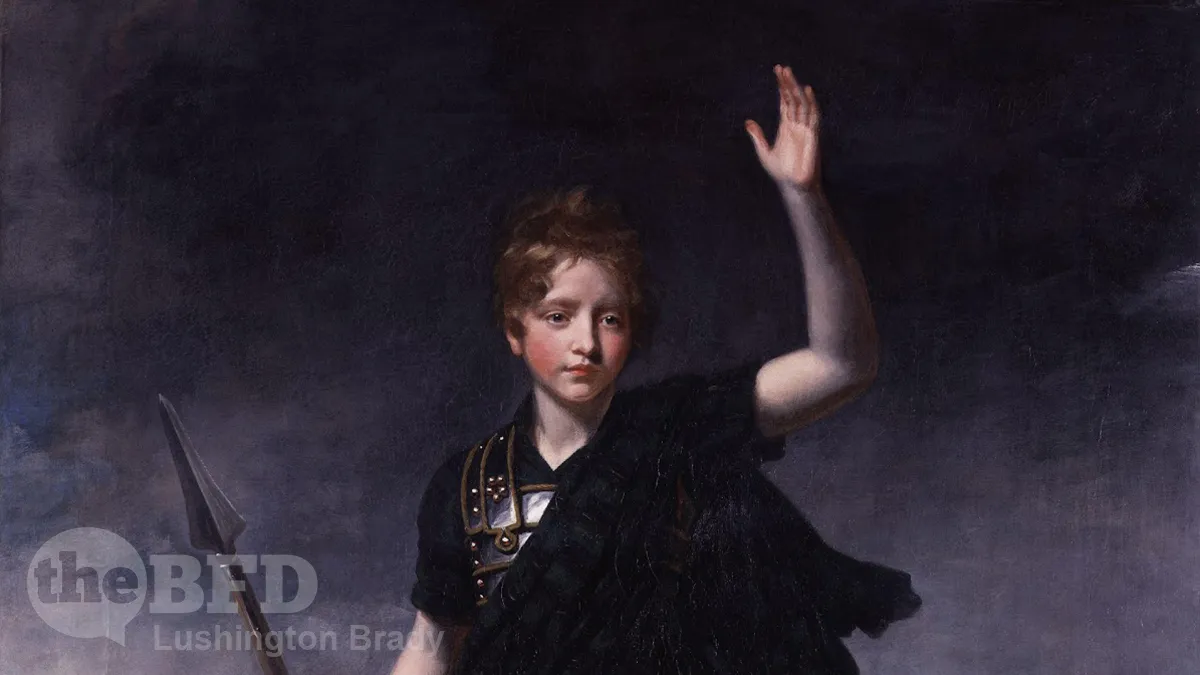Table of Contents
Boomers, as we all know, like to think they invented everything. Teenage sex (what, they never read Romeo and Juliet?), adolescent rebellion (ask Plato about that one), recreational drugs (the entire history of the human race is a saga of inventing new ways to get messed up), and rock’n’roll (nearly all of the rock greats were War Babies, not Boomers).
Oh, but mass fandom, surely the Boomers invented that, with ‘Beatlemania’?
Yeah, think again.
Crowds mobbing theaters. Audience members screaming. A merchandising machine set up around a thirteen-year-old kid. These are the stuff of twentieth and twenty-first century pop culture.
Nope, it didn’t start with Donny Osmond (whom Boomers like to pretend never happened, even though he racked up two gold albums before his balls even dropped) or even Frankie Avalon.
Try William Henry West Betty.
Who?
In 1804, Betty was barely even a teenager – and he was a phenomenon in Regency pop culture. When he arrived in England from Ireland, there were scenes to make a Beatle blush with envy.
Crowds mobbed theaters to get tickets, and at least one woman was trampled to death in Liverpool. At Betty’s London premiere, the theater placed guards outside, but to no avail. The masses swarmed in, overrunning private boxes, and breaking windows and doors. A newspaper reported that the “screams of females were very distressing, and several fainted away.”
Betty’s second appearance in the city was similarly riotous, and two men pulled out pistols and threatened each other over a seat. Attention to these early scenes only ginned up public interest, and even a month into the boy’s time in London a newspaper reported that “crowds still continue to press the theatre on every night of his performance.” Even older men in Betty’s audiences reported being inexplicably overcome with uncontrollable weeping. Fans followed the boy everywhere, even camping outside the house where he was staying.
And, sorry Boomers, but it was these smitten Regency-era Brits who first created the suffix “-mania”.
Anticipating, too, the machinations of managers two hundred years later and across the Atlantic, there was more than a bit of payola involved.
Betty’s people paid critics for good reviews, leaked his letters to the press, and authorized production of medallions, snuff boxes, coffee cups, and other merchandise. Theaters probably also used tricks to inflate the reception Betty received, like strategically placing ringers in the audience to cheer for him.
Boy (pun intended), did it work.
These strategies worked remarkably well on all sectors of the public. Artists around London painted, sculpted, and wrote poetry about Betty. The royal family feted him at the Tower of London. Lord Byron reported that he braved theaters to see Betty on several occasions “at the hazard of my life.” And William Wordsworth expressed hope that the boy could “rescue the English theatre from the infamy that has fallen upon it.”
Like any decent pop culture phenomenon, too, there were plenty of culture-vultures looking down their powdered noses.
Not everyone was impressed. [English professor Jeffrey Kahan] writes that some critics treated England’s wholehearted embrace of the child star as a national embarrassment. But the virulent backlash they received from Betty’s defenders only served to further bolster his image. At a time when the esteemed actor John Philip Kemble was paid £12 a night, Betty’s fee climbed to £100, and he once received £1,200 for a single performance.
In true teen sensation fashion, too, it was all over nearly as soon as it began. William Betty was forgotten almost before he could grow hair long enough to sit on.
While he returned to the stage in 1812 and continued performing for another decade, he never commanded audiences’ attention in the same way again. Some critics argued that his early fame had spoiled his genius, while others believed the theater world had simply been wrong about his promise. As one writer described him much later, he was “only a surprising boy…who became but an ordinary man.”
Jstor Daily
Still, at least there’s no record of the adult William Betty robbing Mrs Miggins’ Pie Shop or turning tricks in the back alleys of Drury Lane.









